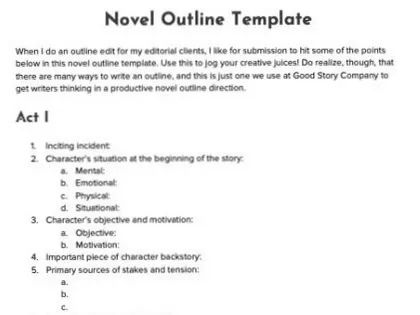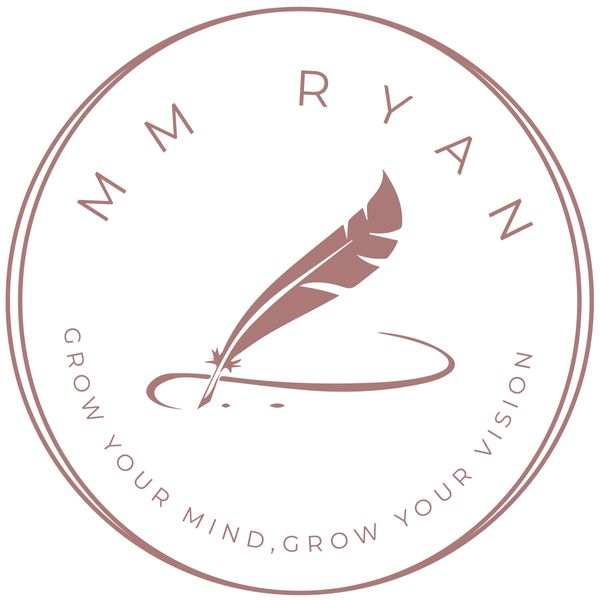
The Great Writer's Debate: To Outline or Not to Outline?
Published by MM Ryan 8/9/2023
Writing is an art form that's as diverse as the writers themselves, and one of the longstanding debates in the writing community revolves around the use of outlines.
Some swear by them, claiming they're the scaffolding that supports a well-structured masterpiece. Others argue that outlines stifle creativity and limit the organic flow of ideas. In this blog post, we'll dive into this debate and explore the pros and cons of using outlines.

My confession--I’m neither consistent nor thorough when it comes to using outlines because I feel they bog me down with detail and take up my writing time; I admit I’m not patient enough.
In my early writing life, I outlined because I was scared to write and found it less intimidating. Once I became more confident in my ability to fill the page, I abandoned the outline.
However, I discovered that by allowing myself to write without a guide, I ended up with words and thoughts all over the place. The effort it took to organize the mess on the backend was even more of a time drain. Much of that work is still sitting in abandoned Word documents somewhere.
The Case for Outlines:
**Structural Foundation:** Outlines provide a clear roadmap for our writing journey. They help us organize our thoughts, prevent tangents, and ensure a logical progression of ideas. This is especially valuable for complex projects like novels, where intricate plots and character arcs need careful orchestration.

**Time Efficiency:** Outlining saves time in the long run. Having a solid plan minimizes writer's block and reduces the need for extensive revisions. We can focus on crafting compelling sentences and refining our prose instead of getting stuck in a sea of confusion.
**Reduced Anxiety:** As was my experience, the blank page can be intimidating, but outlines offer a safety net. We can approach our work with confidence, knowing we have a framework to build upon. This helps alleviate anxiety in the writing process.
**Story Development:** Outlines force us to flesh out your story's key components beforehand. This process can unveil plot holes, character inconsistencies, and weak story arcs, allowing us to address these issues before they become glaring.
The Case Against Outlines:
**Creativity Suppression:** Critics argue that outlines confine creativity. The spontaneity of discovery writing can lead to unexpected and exciting plot twists that might never have emerged within the constraints of an outline.
**Organic Flow:** Writing without an outline can lead to more natural, fluid prose. We can find that our stories evolve in unexpected and exciting ways when exploring new avenues while writing, not outlining.
**Adaptability:** Outlines can be rigid, hindering our ability to adapt to changes that naturally occur during the writing process. Characters might develop minds of their own, and the story's direction might shift—outlines might not always account for these shifts.
**Revision Fatigue:** Critics argue that excessive outlining can lead to overthinking, causing us to become fatigued by the time we actually start writing. Constant tweaking and reworking can stifle progress.

In conclusion, I now outline loosely and revise my outline as a go along. This helps me to be efficient with my time and stay on point--I’m a linear writer, and if I don’t use the work as I’m creating it, I won’t go back to it until I’m searching for a new project to start.
The debate over the usefulness of outlines is far from settled and is a testament to the diversity of writing approaches. Some of us thrive on structure, while others flourish in the uncharted free writing. I’ve found that a combination of each works for me, but ultimately, the decision to use an outline or not depends on our writing styles, the type of projects, and personal preferences.
You should experiment, finding what works best for you, whether it's meticulous outlines or embracing the mysterious unknown with an intuitive approach.
The beauty of writing is that it can be both structured and spontaneous, providing a canvas for all our unique voices! Happy Writing.

